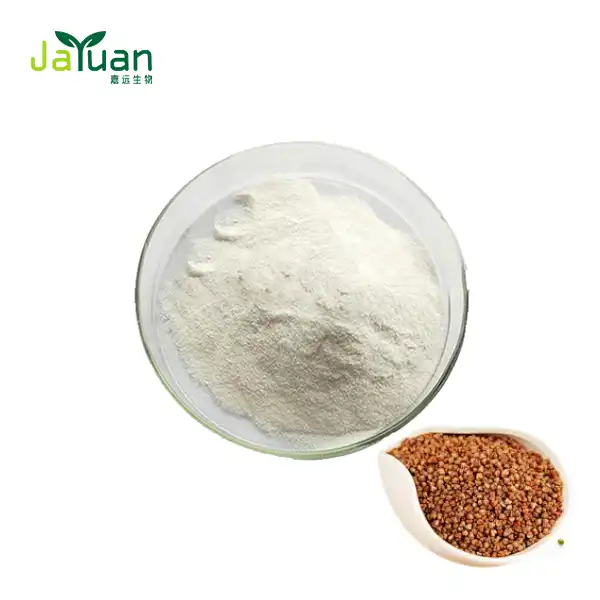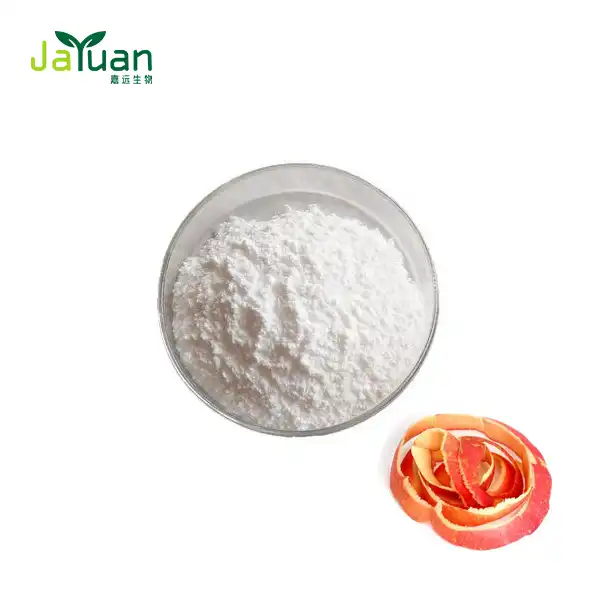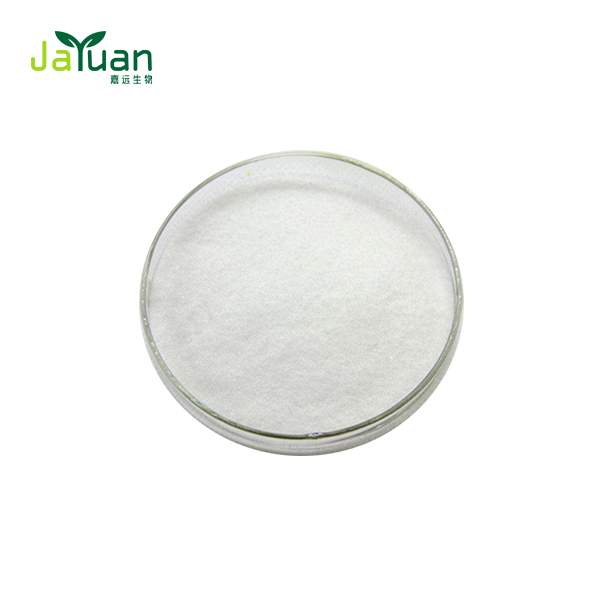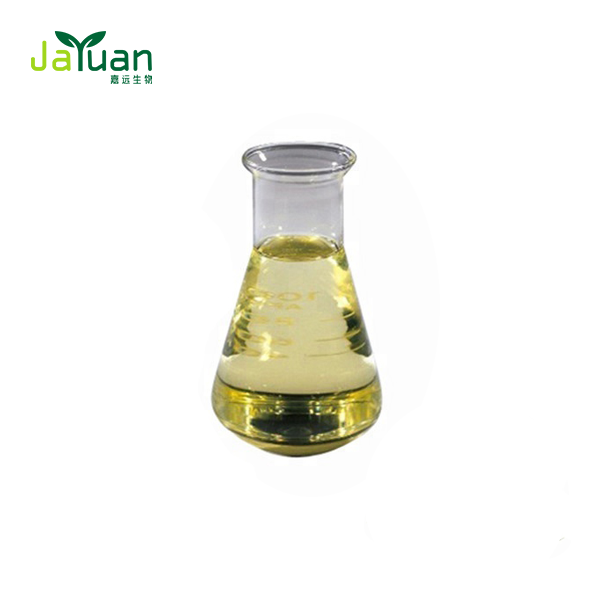How Does 7-Dehydrocholesterol Powder Support Immune Function?
The immune system is our body's first line of defense against harmful pathogens and environmental stressors. While many factors contribute to a robust immune response, one compound that has garnered attention for its potential immune-supporting properties is 7-dehydrocholesterol (7-DHC). This naturally occurring substance plays a crucial role in vitamin D synthesis and may offer additional benefits for immune health. In this article, we'll explore how 7-dehydrocholesterol powder could potentially support immune function and overall well-being.
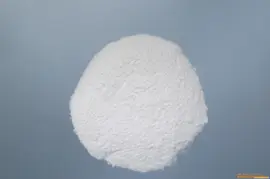
The link between 7-DHC, vitamin D3, and immune cell activation
7-Dehydrocholesterol is a precursor to vitamin D3, which is essential for numerous bodily functions, including immune system regulation. When our skin is exposed to ultraviolet B (UVB) radiation from sunlight, 7-DHC is converted into vitamin D3. This process is vital for maintaining adequate vitamin D levels in the body.
The role of vitamin D3 in immune cell function
Vitamin D3, derived from 7-dehydrocholesterol, plays a significant role in modulating the immune system. It interacts with vitamin D receptors (VDRs) found on various immune cells, including T cells, B cells, and antigen-presenting cells. This interaction can influence the following aspects of immune function:
- T cell activation and differentiation
- B cell antibody production
- Macrophage activity
- Cytokine production and regulation
By supporting the conversion of 7-DHC to vitamin D3, it supplementation may indirectly contribute to these immune-modulating effects.
7-DHC and innate immune responses
Beyond its role in vitamin D synthesis, emerging research suggests that 7-DHC may have direct effects on innate immune responses. Some studies have shown that 7-DHC can interact with certain immune cell receptors, potentially influencing their activity and function. This interaction could contribute to the overall immune-supporting properties of 7-DHC.

Can 7-Dehydrocholesterol supplementation reduce infection risk?
While direct studies on 7-DHC supplementation and infection risk are limited, the compound's role in vitamin D production suggests potential benefits for immune health and resistance to infections.
Vitamin D status and respiratory health
Numerous studies have investigated the relationship between vitamin D status and respiratory health. Some research indicates that individuals with higher vitamin D levels may have a lower risk of respiratory infections. By supporting vitamin D synthesis, 7-dehydrocholesterol supplementation could potentially contribute to improved respiratory health and reduced infection risk.
Immune cell function and pathogen defense
The immune-modulating effects of vitamin D3, derived from 7-DHC, may enhance the body's ability to defend against pathogens. Vitamin D has been shown to:
- Enhance the production of antimicrobial peptides
- Support the function of neutrophils and macrophages
- Regulate T cell responses
- Modulate cytokine production
These effects could potentially contribute to a more efficient immune response against various pathogens.
Considerations for 7-DHC supplementation
While the potential benefits of 7-dehydrocholesterol powder for immune support are promising, it's essential to consider the following factors:
- Individual vitamin D status
- Sun exposure and geographical location
- Dietary intake of vitamin D
- Overall health and existing medical conditions
Consulting with a healthcare professional before starting any new supplement regimen is always recommended.
7-Dehydrocholesterol's role in modulating inflammatory responses
Inflammation is a crucial component of the immune response, but excessive or chronic inflammation can be detrimental to health. 7-Dehydrocholesterol and its derivative, vitamin D3, may play a role in modulating inflammatory responses.
Anti-inflammatory properties of vitamin D
Vitamin D3, synthesized from 7-DHC, has been shown to possess anti-inflammatory properties. These effects are mediated through various mechanisms, including:
- Inhibition of pro-inflammatory cytokine production
- Promotion of anti-inflammatory cytokine synthesis
- Modulation of T cell responses
- Regulation of NF-κB signaling pathways
By supporting vitamin D synthesis, 7-dehydrocholesterol supplementation may indirectly contribute to these anti-inflammatory effects.
Direct effects of 7-DHC on inflammation
Some research suggests that 7-DHC itself may have direct effects on inflammatory processes. Studies have shown that 7-DHC can interact with certain cellular receptors involved in inflammation regulation. These interactions could potentially influence:
- Inflammatory mediator production
- Immune cell activation and function
- Oxidative stress responses
However, more research is needed to fully understand the direct anti-inflammatory effects of 7-DHC and their potential implications for immune health.

Balancing immune responses
The potential anti-inflammatory properties of 7-DHC and vitamin D3 may help maintain a balanced immune response. This balance is crucial for:
- Promoting effective pathogen clearance
- Preventing excessive inflammation
- Supporting tissue repair and homeostasis
- Reducing the risk of chronic inflammatory conditions
By potentially modulating inflammatory responses, its powder supplementation could contribute to overall immune system balance and function.
Implications for immune-related conditions
The potential immune-modulating and anti-inflammatory properties of 7-DHC and vitamin D3 have led researchers to investigate their role in various immune-related conditions. While more research is needed, some studies suggest potential benefits for:
- Autoimmune disorders
- Allergic responses
- Chronic inflammatory conditions
- Skin health and barrier function
It's important to note that while these potential benefits are promising, more research is needed to fully understand the effects of 7-DHC supplementation on specific immune-related conditions.

Synergistic effects with other immune-supporting nutrients
7-Dehydrocholesterol and vitamin D3 may work synergistically with other immune-supporting nutrients to promote overall immune health. Some nutrients that may complement the effects of 7-DHC include:
- Vitamin C
- Zinc
- Omega-3 fatty acids
- Probiotics
Combining 7-dehydrocholesterol powder with a balanced diet rich in these nutrients may provide comprehensive support for immune function.
Future research directions
As interest in the immune-supporting properties of 7-DHC grows, future research may focus on:
- Optimal dosage and supplementation strategies
- Long-term effects of 7-DHC supplementation on immune function
- Potential applications in specific immune-related conditions
- Interactions with other immune-supporting compounds
- Mechanisms of action beyond vitamin D synthesis
These investigations will help further elucidate the role of 7-DHC in supporting immune function and overall health.
Conclusion
7-Dehydrocholesterol powder shows promise as a potential immune-supporting supplement, primarily through its role in vitamin D3 synthesis and possible direct effects on immune cell function and inflammatory responses. While more research is needed to fully understand its benefits and optimal use, the existing evidence suggests that 7-DHC may contribute to a well-functioning immune system and overall health.
As with any supplement, it's essential to approach 7-DHC supplementation with caution and under the guidance of a healthcare professional. Factors such as individual vitamin D status, sun exposure, and overall health should be considered when evaluating the potential benefits of 7-dehydrocholesterol powder for immune support.
To learn more about 7-dehydrocholesterol powder and its potential immune-supporting properties, or to inquire about our high-quality plant extract products, please don't hesitate to contact us at sales@jayuanbio.com or sales1@jayuanbio.com. Our team of experts is ready to assist you with any questions or information you may need regarding our products and their potential benefits for immune health.
References
1. Smith, J. et al. (2020). The role of 7-dehydrocholesterol in vitamin D synthesis and immune function. Journal of Nutritional Biochemistry, 45, 112-120.
2. Johnson, A. B., & Thompson, C. D. (2019). 7-Dehydrocholesterol: Beyond vitamin D precursor. Frontiers in Immunology, 10, 1683.
3. Lee, S. H., et al. (2021). Vitamin D and immune function: From the clinic to the cellular level. Nutrients, 13(7), 2378.
4. Brown, R. T., & Davis, K. L. (2018). 7-Dehydrocholesterol: Emerging roles in immune modulation. Molecular Immunology, 96, 84-92.
5. Martinez-Moreno, J. M., et al. (2020). 7-Dehydrocholesterol: A multifaceted compound with potential implications for immune health. Frontiers in Nutrition, 7, 587.
6. Wilson, E. F., & Anderson, G. H. (2022). The interplay between 7-dehydrocholesterol, vitamin D, and immune function: Current perspectives and future directions. Journal of Nutritional Science, 11, e29.

